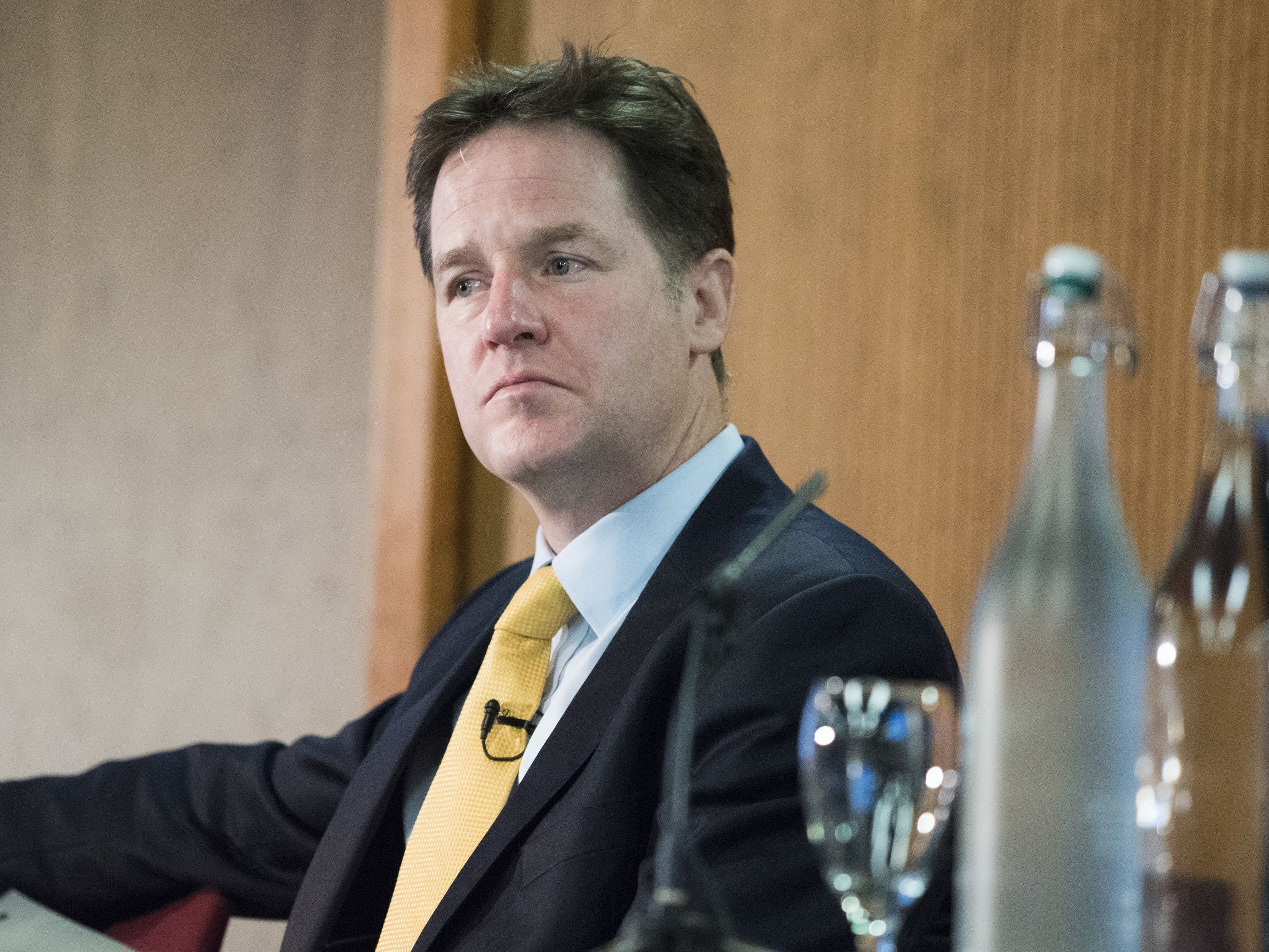Is ‘zero suicides’ an ambitious enough target?
There is a difference between preventing people taking their own life and saving that life in its fullest sense

Nick Clegg announced on Monday a new ambition for zero suicides in the health service.
This is, of course, a very commendable thing to be aspiring to. How could it not be? Having reached an all time low in 2007, suicide is once again on the increase, and a particularly key time for many seems to be the weeks following discharge from a mental health ward.
But suicide is a complex subject, and there are potential risks in simplifying the issue or focusing responsibility in just one area or discipline.
Clegg’s commitment specifically involves asking NHS trusts to sign up to an ambition for “zero suicides” among people who have used the health services. Now, suicides happen in all sorts of places: in prisons, at home, in public.
The health system may well be in touch with people in these settings but it’s just one of many factors that might impact someone’s mental health (others being employment, welfare, relationships, poverty). It’s incredibly important to see the whole person together with their full set of circumstances.
For example, someone may have excellent support from the NHS for their mental health, but their chances of staying well will still be slim if they have no secure housing or income, or if their relationships are breaking down.
As we’ve seen in recent weeks, the health system is under enormous strain. On top of this, our experience tells us that mental health tends to lose out to other disciplines when budgets are stretched. Whether or not they are thinking of suicide, people aren’t always getting the help they need for their mental health, and while resources are a key factor, attitudes and structures also need to change.
Though there have been some recent indications of a commitment to “parity of esteem” with physical health, this shift is likely to take some time, and it would be a great shame to see attention diverted from these (perhaps less newsworthy) issues.
The rhetoric around this initiative begs an important question: is committing to preventing people from taking their own lives the same as saving their lives in the fullest sense?
At Together, we always remind ourselves and others to be ambitious about what people can achieve. We set out with an expectation that people can and will get better, no matter how severe and enduring their mental health problems.
By "get better", we mean make progress towards a more fulfilling, independent life, in terms of health but also in all sorts of other ways. With this in mind, it’s important not to let the end objective (of stopping people from completing the act of suicide) make us lose sight of our role to support people to actually progress towards better mental wellbeing and living a life they want to lead.
Maintaining a non-life-threatening status quo isn’t enough if that status quo equates to a miserable existence. Clegg’s is a hugely ambitious aim, but it also paradoxically needs to make sure it is ambitious enough about what can be achieved by people who experience mental distress.
Focusing on the act of suicide itself brings with it a few risks, and Clegg seems to have sensed this as he states very clearly that his initiative is not about blame. Suicide is a sensitive subject, none more so than for those who have had ideas of suicide, or have lost a loved one to suicide.
There are numerous pitfalls, including straying into territory that compounds stigma, or falling into the trap of talking about “saving people from themselves” or undermining their distress. Moreover, any focus on suicide mustn’t equate to waiting until the most critical, most desperate moment to intervene.
We have heard from far too many people who were only able to access support when they reached the point of terrible crisis. Noticing when someone is nearing the point of suicide is important, but we should certainly not be waiting until then to act.
Liz Felton is CEO of Together for mental wellbeing, a national charity working alongside people with mental health issues
Join our commenting forum
Join thought-provoking conversations, follow other Independent readers and see their replies
Comments
Bookmark popover
Removed from bookmarks